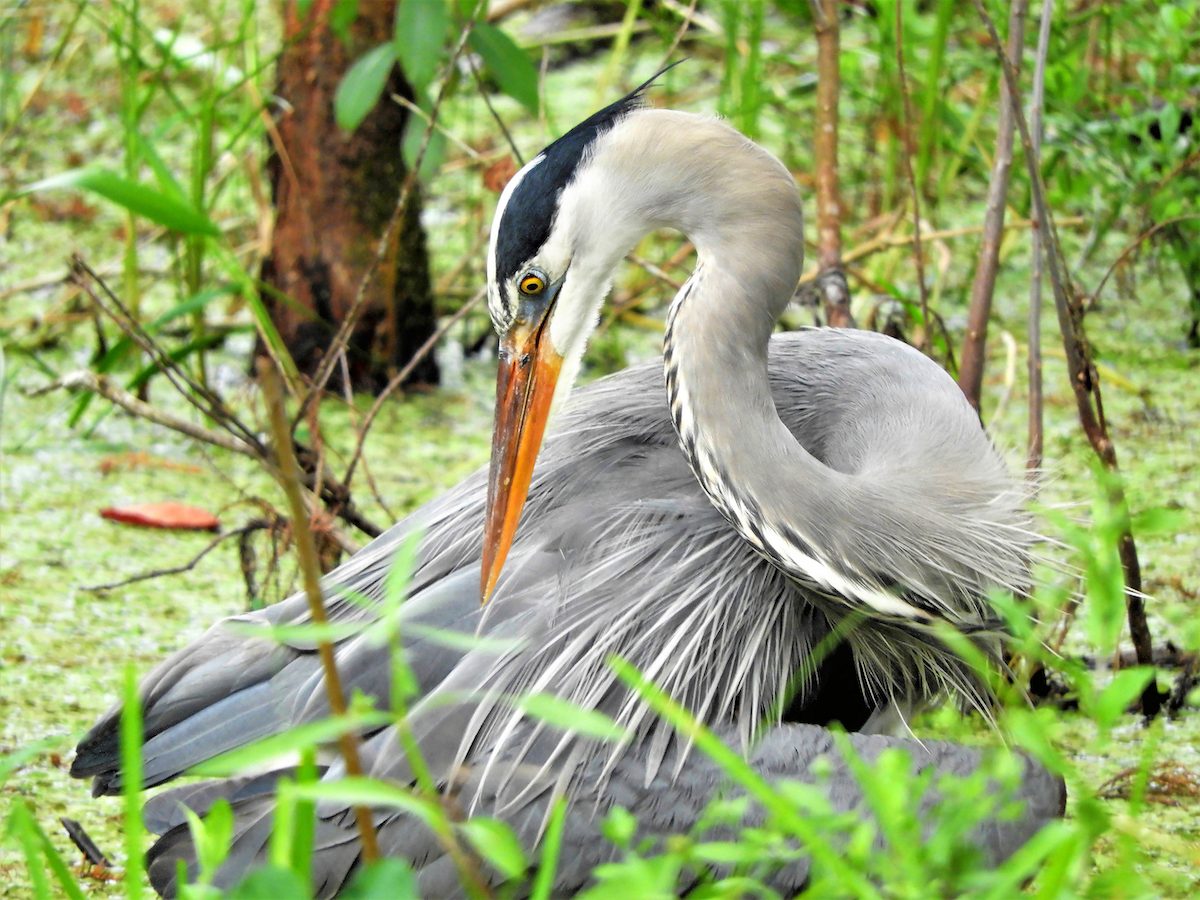Spotting a regal, statuesque great blue heron is always a treat. Learn facts about these birds' nests, calls and more.

7 Fascinating Great Blue Heron Facts

On This Page
Do Great Blue Herons Migrate?

“Is it normal for a great blue heron not to migrate? There’s one still fishing in our backyard pond,” writes Marion Lambert of Lyndonville, New York.
Birding experts Kenn and Kimberly Kaufman say, “It’s true that most great blue herons migrate to warmer climates in winter, but a few will remain far to the north, especially where some open water gives them access to fish, frogs and other aquatic prey. If the water is temporarily frozen, they may survive by catching mice and other small animals.
Staying north is a gamble that doesn’t always end well for these lingering birds, but on the other hand, they avoid the perils of migration by remaining where they are. Sometimes the risk pays off.”
Great Blue Heron Size
The great blue heron is the largest heron species in North America, standing about 4 feet tall. But even though they are large birds, they don’t weigh much (only 5 to 6 pounds), thanks to their light, hollow bones (a trait most birds have).
Learn about 10 egrets and herons found in North America.
Great Blue Heron Nest

Nests vary widely. A first-year nest may be only 20 inches across. Others, used repeatedly for many years, can reach 4 feet in diameter and nearly as deep. A colony, also known as a rookery, might have more than 500 nests.
Learn how to identify a green heron.
How Fast Do Herons Fly?

For such large and lanky birds, herons are speedy, flying as fast as 30 mph. They usually fly with their necks in an S-shape and their legs trailing behind them.
Check out fascinating facts about wading birds.
What Do Great Blue Herons Eat?

With a lightning fast strike, herons easily nab fish or frogs and other small reptiles for a meal. They also eat insects, rodents and other small birds.
Great Blue Heron Call
Bird sounds courtesy of the Cornell Lab of Ornithology
One part of this species that’s not beautiful is its call. The rough squawk has a guttural, almost prehistoric sound to it.
Do Males and Females Look Alike?

Great blue herons are one of the most beautiful birds in America. The male and female look almost exactly the same. On average, males are a little larger with longer ornamental plumes, but these distinctions are so slight and variable that it’s hard to see the difference, even when members of a pair are together.
Pairs are together only when they are on the nest. That’s where they do their courtship and all their interactions around raising their young. When they fly off to find food for themselves and their young, they go separately, not together.
Next, learn how to identify a little blue heron.
About the Experts
Kenn and Kimberly Kaufman are the official bird experts for Birds & Blooms. They are the creators of the Kaufman Field Guide series and they lead birding trips all over the world.




















